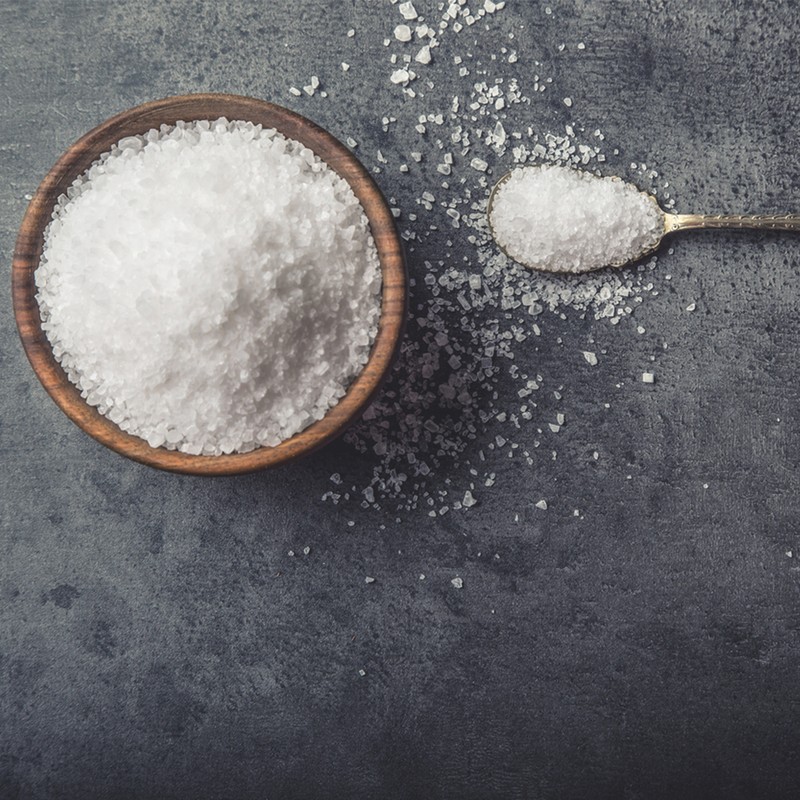This Could Be The Reason You’re Craving Salty Snacks
1. You Could Be Calcium Deficient
Research has shown that salt cravings are often due to a calcium deficiency. This is because when you eat something salty the sodium temporarily increases calcium in the blood, which tricks your body into thinking the calcium deficiency is over. However, while this may temporarily satisfy your salt craving, the secreted bone calcium leads to an exacerbated calcium deficiency and further salt cravings. Essentially, it’s a hard-to-break cycle.
Signs to look out for: Anxiety, irritability and lethargy; muscle cramps; tingling or numbness in your fingers, toes or lips; heart palpitations; teeth loss or broken bones.
What to do next: If you suspect you may have a calcium deficiency, but otherwise feel generally well, try upping your intake by incorporating more calcium-rich foods in your diet. These include dairy products, broccoli, poppy seeds, almonds, tofu, canned sardines, and fortified foods such as bread, breakfast cereals or juice. However, if you’re experiencing serious symptoms, such as heart palpitations or teeth loss, it’s vital you see your GP.
2. You Could Be Dehydrated
Another common reason we crave salt is dehydration. When you’re dehydrated, or lose sodium from your body via exercise, vomiting or diarrhoea, your body naturally seeks out both fluids and salty foods to replenish its electrolyte balance. This is likely the case too if you’re feeling under the weather – illnesses like colds, flu and stomach upsets not only increase the chances of dehydration, but can reduce your taste abilities too; meaning salty foods seem even more appealing.
Signs to look out for: Feeling thirsty; dark yellow and strong-smelling pee; feeling dizzy, lightheaded or tired; dry mouth, lips and eyes; peeing little, and fewer than four times a day.
What to do next: Aside from ensuring you’re drinking enough water, try eating more electrolyte-packed foods and drinks post-workout to fend of those salty snack cravings. Chia seeds, kale, celery, apples, beetroots, bananas, oranges, sweet potatoes and coconut water are all good options.
3. You’re Headed For Burnout
A state of chronic stress often experienced by high-achievers, burnout is on the rise in workplaces – and it could be behind your cravings. Studies suggest that those of us who don’t get their recommended eight hours’ each night are more likely to crave snacks with high ‘satisfaction levels’ such as salty, crunchy foods. And the same is true for stress – when stress levels rise, it’s common to experience cravings for foods high in fat, sugar and salt. Not only this, but stressed out and sleep-deprived people also tend to be less able to resist these cravings once they arise.
Signs to look out for: Fatigue; insomnia; forgetfulness and impaired concentration; increased illness; anxiety; depression; apathy, loss of enjoyment and cynicism.
What to do next: Take this as a wake-up call you could be on a dangerous path. Make your mental and physical health a priority and take the time to honestly assess the amount of stress in your life, and find ways to reduce it (the NHS has a list of helpful resources). And if you've tried self-help techniques and they aren't working, see your GP who can refer you for psychological therapy, such as CBT.
4. You Have Addison’s Disease
In rare cases, salt craving can so be caused by adrenal insufficiency, otherwise known as Addison's disease. This autoimmune disorder – which is estimated to affect around 8,400 people in the UK – sees the body attack the adrenal glands and adrenal cortex, which then don’t produce enough of the steroid hormones cortisol and aldosterone. It's not clear why some people develop this problem with their immune system, although it can run in families.
Signs to look out for: Fatigue; lethargy; muscle weakness; low mood or irritability; loss of appetite and unintentional weight loss; the need to urinate frequently; increased thirst.
What to do next: If you’re at all, see your GP. Addison's tends to gradually worsen over a number years, and can eventually result in a life-threatening condition called an adrenal or Addisonian crisis. The disease can be difficult to detect at first because early symptoms are similar to those of many other health conditions, so it’s vital your doctor rules those out too.
DISCLAIMER: We endeavour to always credit the correct original source of every image we use. If you think a credit may be incorrect, please contact us at info@sheerluxe.com.






